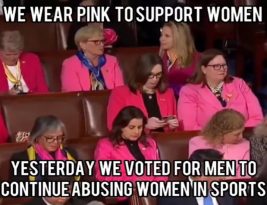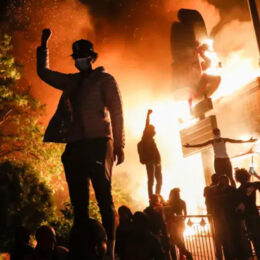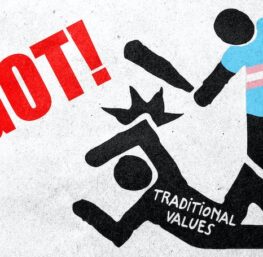American Thinker | by Allen Weingarten | Nov. 2, 2009
The left avers that many Americans are poverty-stricken, that we need to do more to alleviate their plight, and that the primary role of government is to help them. Let us examine these claims.
‘Poverty’ may be viewed as harsh deprivation, such as in Biafra or the Congo. Yet nobody in America starves to death. It is true that the standard of living of illegals from Mexico is far below ours, yet even they are far better off than the inhabitants of third-world countries. Nor do the poor in America suffer as did those during the Great Depression.
Consider the article “How Poor Are America’s Poor? Examining the ‘Plague’ of Poverty in America” by Robert Rector, August 27, 2007. Using the Census Bureau definition of “poor,” he shows that: 80% of poor households have air conditioning; 75% own a car; and these “poor” grow up to be an inch taller and ten pounds heavier than the GIs who stormed Normandy. Most of America’s “poor” live in material conditions that were considered comfortable a few generations ago.
I would add that the monetary value of their benefits package does not include other sources of income. Many have jobs that are off the books, and income from dealing in drugs, gambling, prostitution, and fencing stolen goods. This is not to deny that there are those in dire circumstances. Rather, it is to claim that the media’s description of the poor in America is inaccurate.
Then consider Dr. Rector’s study on what “poverty” costs taxpayers, “Morning Bell: What The Poverty Advocacy Complex Costs You.”
Over the next decade (2009-2018), President Obama will spend $10.3 trillion on welfare programs. Of this spending, $7.5 trillion will be federal spending and $2.8 trillion will be state government matching contributions to federal welfare programs.
Over the next decade, welfare spending will amount to $30,000 per person per year — $120,000 for a family of 4 per year — 56% of which (or $67,200) goes to the recipients.
Moreover, these direct costs do not cover the concomitant costs for enterprises. That is, many organizations apply to whole populations, although their justification is the needs of the “poor.” For example, most people can afford education, but to guarantee it for the poor, there is public education for most, as well as subsidies. The same holds for establishing Social Security, Medicare, housing, health insurance, and industrial policy. There are then huge additional costs to the taxpayers and to the recipients of services who are not “poor.”
All of the programs for the “poor” are forms of redistributing wealth. Support for this derives from the view that there is unfairness in life. Yet aside from criminality (which must be prosecuted), nature rewards productivity and punishes ineptitude. To deal with unfairness and happenstance, or to provide the opportunity for the poor to better themselves, private charity is best. Public charity (while imperative for emergencies) is far from local oversight and susceptible to moral hazard and fraud. Wealth distribution also derives from envy. Yet the desire to punish the rich, not to mention coveting what they have, is immoral and destructive to society as a whole.
Let us consider what would be optimal for increasing jobs and wealth in general. History (or natural law) has evolved tried-and-true techniques for doing so, such as the division of labor and the quantification of value by money (provided, of course, that private property and contracts are ensured). Herein, man utilizes land, labor, and time to provide desired products (while employing the intermediary capital goods to do so). Consequently, optimizing economics requires safeguarding our rights; furthering the time-tested methods for increasing production, distribution, and calculation (while in particular allowing entrepreneurs to experiment for profit); and letting nature take its course in weeding out failing and uncompetitive ventures. Surely this runs counter to intervention to aid the poor.
Yet the central issue is, “What is the role of government?” Most say it is to provide benefits, especially to the poor. Yet I counter that the true role of government it is to protect the freedom of the citizenry to earn their own benefits. Each of our institutions (e.g., finance, military, industry, medicine) has its essential and unique role. In no case is the role to be helpful to the poor. Our financial systems must be solvent, our military structures must protect against aggression, and our domestic systems must deal with emergencies (including harm to life and limb). Our Founders had it right: the role of government is to protect the inalienable rights of its citizenry. This includes ensuring that our cultural institutions (including charity) be free of government.
“Justice” is the cornerstone of civilization. It cannot be achieved by immorally distributing wealth or by rewarding failure. For liberty, it is imperative that people own what they have earned, rather than permit government to transfer it to others.
In sum:
– few suffer from poverty, we have done too much to relieve it, and the role of government lies elsewhere;
– the direct costs do not include the huge concomitant costs;
– the premise that poverty is due to unfairness is mistaken and misleading;
– to increase jobs and wealth, the best approach is to employ the tried-and-true mechanisms of the market, especially the failure of uncompetitive ventures;
– government must be restored to its proper functions of protecting our liberty;
– and justice requires that people own what they have earned, rather than have it transferred to others.
From the top: man has free will and a right to his property. While the role of government is to protect him, government instead violates that right. Consequently, rather than having a flourishing economy, we have failure, and the propaganda for more of the same.
. . . more



